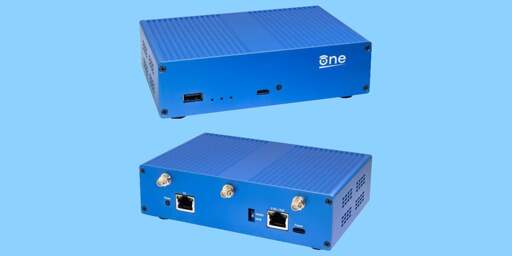Is it available only though aliexpress?
I need this router.
Of course, I just bought a new router, your all welcome
Thank you for your sacrifice.
Which router did you go for, by the way?
What’s the point of having 1G on WAN and 2.5G on LAN? Traffic won’t hit the LAN port until it’s routed to the Internet, yet the WAN port is the bottleneck.
Local NAS, local security cameras, in-house streaming, LAN multiplayer, local torrent-like data sharing (FYI, Windows Update and more uses the local network to share update between computers by default, so it gets downloaded once and then shared internally)
Then use a switch …
Could it help with internal tasks, like self-hosted services or a business that transfers files around a lot?
It’s default 2.5G WAN and 1G LAN. It also has wifi to use some of that bandwidth.
Does it have enough power to handle routing (not just switching) 2.5Gb + 2.5Gb + whatever the WiFi can support? My guess is it cannot and it would have pushed the price up signifcantly to do so.
Does seem counter intuitive to me as this is squarely aimed at enthusiasts who would like to min max their home network.
The LAN and WAN ports aren’t labelled as such on the device and can be configured to do anything. The 2.5Gb port can also be used to take in PoE so for a lot of people - myself included - this will be the only port that’s actually used, or at least the port that will be used the heaviest. The reason, I think, that it’s configured as WAN by default is so that the LAN port can be used to plug a laptop in directly without disconnecting the whole network.
This person knows openwrt haha.
It doesn’t matter. Port configuration can switch around and the bottleneck is still there. Traffic with in the broadcast domain (i.e. subnet) will handled by the switch alone.
There is WiFi onboard so it can have some actual benefits, depending on design and how user access resources, but how likely you’re going to saturate that 1/2.5G link? Not even you stream some 4K movies from Plex to iPhone will does that.
I think you might have missed the point: with a managed switch that 2.5Gb port can be used to handle multiple WAN and LAN connections simultaenously. My home network includes two WANs and six LANs split purely by VLAN tagging and that 2.5Gb connection should handle all of them just fine.
Maybe it can be used as a router on a stick.
Tranfering between devices on the LAN.
This is a common setup for WiFi routers, where the idea is that most traffic will be on WiFi.
deleted by creator
This is link to CZ.NIC’s Turris offerings.
They ship to “many countries” besides Czech republic, according to their page.
The router itself is quite expensive at around 400 euros for the wifi model.
In case it is not obvious, they are primarily Czech domain registrar.
I’m late to the party but please consider this FOSS / liberated hardware option from thinkpenguin. Highly recommended.
Powered by usb-c, runs on librecmc
https://www.thinkpenguin.com/gnu-linux/free-software-gigabit-mini-vpn-router-tpe-r1400

The fact that this has USB type C as a option for powering it makes me very interested, but the fact that it does not have at least Wi-Fi 6E makes me not interested. So I think I will have to wait for version 2 of this.
In the us at least, you cannot have 6ghz operation and connectorized antennae like this unit has
Oh come on, don’t rock the router for not being the best access point. That’s not what it’s for.
If I remember correctly, Wi-Fi 6E was finalized in like 2021 or 2022, and it’s 2024 and very close to 2025. So it should be about three years that Wi-Fi 6E has been in the wild. I only have 500 MBPS fiber anyway so I wouldn’t saturate the links but I do want the six gigahertz Wi-Fi band because if I’m going to buy a new router I’m going to probably keep it for like 10 years. I think I purchased my previous router in like 2019 and I’m still using it. My router is an appliance that I only replace when the damn thing breaks pretty much.
I’m saying that your router and access point should be separate devices anyway, especially if you don’t want to replace said router.
My router doesn’t have wireless at all. I have a dedicated WiFi 6 access point for that, if I want to go up to a newer standard I just replace the AP.
Yeah, fair enough. I’m kind of an intermediate user, because when I think of Access Point and Router, I think of the same device. But yet, I’m definitely a big advocate of open source software and hardware. But I do not self-host very much.
The best routers don’t have any WiFi.
Turris Omnia & OpenWRT-ONE I wish we had this in Asia
Are you suggesting that AliExpress doesn’t ship to Asia?
Ali Express is not as widely-available as you think in Asia (Political stuff)
I’m not sure why I would get this openwrt one i stead of one from Turris
Shady
…is it?
…can I get a peer review on the amount of shade we’re being given, here? I get it’s their hardware but isn’t it more… chosen hardware? Isn’t the software also public?
Where’s the shade, exactly?
So, how is this any better than the Router Mini PCs you can find in Aliexpress (random example)?
Most of those run OpenWrt or PfSense. Assuming the hardware is well-supported by the open source software it runs, there’s a argument to be made that there’s no difference. There’s always the risk of them using some weird chipset that won’t be supported in a year’s time. The only difference is that the OpenWrt One is specifically designed for OpenWrt with well-supported hardware.
how good is openwrt these days? i used it a long time ago on tp link hardware are remember it was not too good…like adding own scripts, addons etc. and then i tried stuff like ipfire,ipcop and pfsense. pfsense was so much better and now opensense is quite good. how does current openwrt compare?
OPNsense is like comparing a bicycle to a car (in Europe) Both will get you there,the first one is more convenient most of the time for most users,but the second one is a whole class of “more powerful”. But it’s far easier to take a shortcut with a bike.
k. thanks. i really was thinking they made hughe progress now that they do dedicated hardware.
They don’t, as others have pointed out. It’s just a standard single board computer with some addons and a case.
I’ve been using it on my last 2 routers, currently the Netgear WAX206 and I’m loving it.
It does what it’s supposed to. No complaints.
WiFi
The very example I provided comes with an mPCI-e slot to install a WiFi card of your choosing.
Also they have SIM card slots so you can install a data SIM card and set-up a fallback configuration that switches to it if your landline internet connection goes down.
Of course. But this one comes with WiFi onboard and a case with antennas if you go for the clothed option.
It’s Open source hardware too
Whilst that’s a nice slogan, in Electronics “open source” doesn’t mean anywhere as much as it does in Software because it’s generally just knowing which components go into the circuit, which is but a fraction of the work (laying out the board is a massive chunk of work, in some cases most of it, and at high enough clock speeds circuit design is an art in itself).
Mind you, I like the Orange Pi and Banana Pi guys, and the idea of an SBC designed for being an open source router is pretty appealing, though nowadays maybe pfSense would be a better choice than OpenWrt.
Finally this thing having only 2 ethernet ports + WiFi makes it little more than a regular $70+ SBC board + a box - something easy enough to put together by any technically inclined person - which isn’t exactly exciting.
pfSense would be a better choice than OpenWrt
I heard pfSense had a hard time with wireless radios, and that’s where OpenWrt shines comparably. Is that not true?
Open hardware (by oshwa definition) would include the board layout
GTFO, clicking on “buy now” two times results in some shop which has “aliexpress” as the official partner.
This can’t be a product from the sources mentioned, can it?
It says its a BananaPi product, and BananaPi uses aliexpress as a distributor according to https://www.banana-pi.org/web/index.php?topclassid=155&classid=155&lanstr=en&wap=1
checks out afaik
There are use cases for this router, but please don’t get the plastic clone sold by the same Chinese company that assembles the real thing. (The plastic clone costs a third, but doesn’t have detachable antennas and doesn’t accept mainstream OpenWRT because it uses an almost unknown CPU.)
Myself, when I need a high capability router (for me “capability” typically means “range”) I turn towards a Raspberry Pi and Alfa AWUS1900 wireless card. Yes, it lacks in throughput (USB is a severe bottleneck)… but with a bit of tweaking, you can talk out to 2 kilometers if terrain allows. :)
I need this but 4G version…
GL.inet has some LTE routers with OpenWRT on them. I haven’t tried the LTE version, and the one (Shadow) I have has to be rebooted once a week, but that’s a really cheap one I was trying.
The price is right for sure, but it’s still sad they didn’t shoot for wifi 7. It was a pretty big leap in latency reduction.














